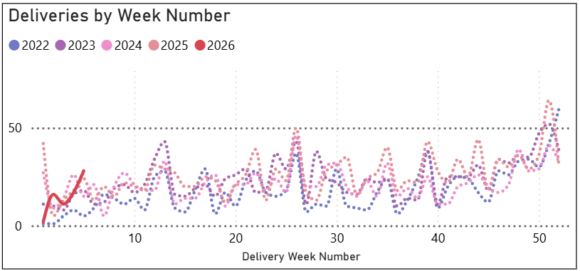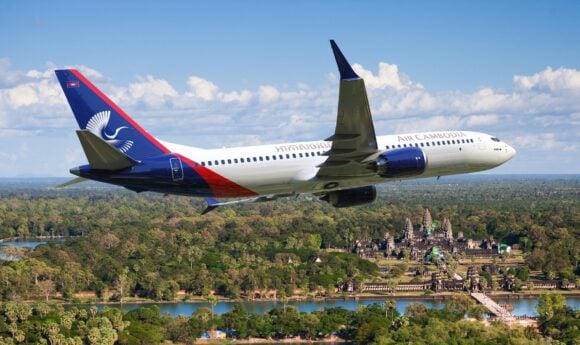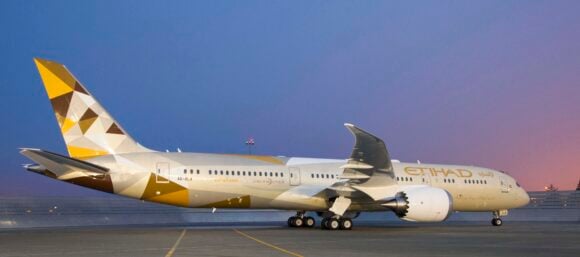
Indian aviation
The Airbus board, the European aircraft manufacturer, met in Delhi. This is the first time in six decades that the Board met in India.
The Civil Aviation Minister, Mr. Kinjarapu Rammohan Naidu, took to X to announce that he and the Indian External Affairs Minister, Dr. S. Jaishankar, had an “engaging meeting with senior leadership of Airbus and IndiGo.” The Indian Minister of External Affairs is the equivalent of the Secretary of State in the United States.
The X post added that “the entire board of Airbus coming to India for the first time signifies the strength of our partnership.” The Minister stated that every Airbus aircraft and helicopter features systems designed, manufactured, and maintained in India. “We are committed to further strengthen our ties through stronger manufacturing, advanced skilling and a sustainable aviation ecosystem” the Union Civil Aviation Minister said.
The meeting takes place against the backdrop of the Indian government’s keenness to establish an aircraft Final Assembly Line (FAL) in the country.
The Press Trust of India, a wire service similar to Reuters, reported that on Tuesday, Airbus Chairman Rene Obermann met with Narendra Modi, the Indian Prime Minister. The report further says that the Board visited the manufacturing facility of Tata Advance Systems Limited (TASL) in the southern city of Hyderabad and their supplier, Dynamatic Technologies in Bengaluru, the IT capital of India.
Airbus and Boeing have manufacturing facilities in India
The Airbus Board meeting comes just days after Airbus announced that it will manufacture the H125 helicopter in the southern Indian state of Karnataka.
In addition, a factory to produce the C-295 defence aircraft is being established in the Western state of Gujarat by Airbus and TASL, a subsidiary of the Tata Group.
The inauguration of the Indian C295 final assembly line (FAL) in Vadodara, in Gujarat, India, on 28 October 2024, was attended by the Prime Ministers of Spain and India.
Airbus operates assembly lines and production sites around the world. Still, the Indian C295 program is the first time the company has deployed the entire production system for an aircraft outside its home nation.
Similarly, Tata Boeing Aerospace Limited (TBAL) has delivered the 300th fuselage for the AH-64 Apache attack helicopter from its state-of-the-art facility in Hyderabad. These fuselages are manufactured for customers worldwide, including the US Army, and six are currently on order with the Indian Army. The Indian Air Force operates a fleet of 22 AH-64E Apache attack helicopters. This milestone reflects TBAL’s ongoing commitment to enhancing India’s defense capabilities and advancing the nation’s indigenous manufacturing capabilities.
The joint venture between Boeing and Tata Advanced Systems Limited (TASL) employs over 900 engineers and technicians, leveraging cutting-edge robotics, automation, and advanced aerospace concepts in its manufacturing processes.
Indian companies are suppliers to both Airbus and Boeing
A host of Indian companies, including Aeques, the state-owned Hindustan Aeronautical Limited, and Dynamatic, among others, are Tier I and Tier II suppliers to Boeing and Airbus.
Aircraft parts suppliers are categorized as Tier 1 and Tier 2 suppliers. A Tier I source in Airbus is the sole supplier globally for a particular product, while a Tier II supplier is among many global suppliers making that part, says a source in the company. As for Boeing, sources indicate that Tier I suppliers directly supply the company, while Tier II suppliers are indirect suppliers to Tier I suppliers.
Dynamatic Technologies, Aequs, and Mahindra Aerostructures, among other large and small Indian companies, are supplying components to global aircraft manufacturers like Boeing and Airbus.
Dynamatic Technologies is a leading supplier of complex aeronautical parts, structures, and designs to Boeing, Airbus, and Bell Helicopter.
Tata Boeing Aerospace Limited (TBAL), based in Hyderabad, produces 777 uplock boxes, which are metallic structures that house the landing gear in retraction, as well as 777 vertical fins, which are structures designed to reduce aerodynamic side slips and provide directional stability.
Additionally, hundreds of MSMEs are involved in manufacturing aircraft parts, including winglets.
Views: 292




